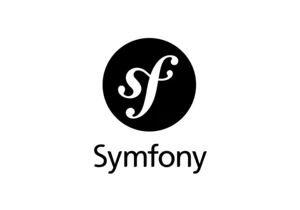Autowiring Iterators/Locators with Attributes¶
Contributed by
Alexander M. Turek
and Nicolas Grekas
in #40406.The traditional way of working with service tags in Symfony applications involves these steps: Apply some tag to one or more services (either manually or applying a tag automatically to all services that implement some interface); Add some service configuration to tell Symfony to inject all services tagged with that tag into another service; Prepare that other service to receive tagged services as a PHP iterator, This process can quickly become repetitive and boring. That’s why in Symfony 5.3 we’re improving this feature to inject tagged services with PHP attributes. Imagine that your application needs to inject all services tagged with a custom tag called app.handler. First, apply this tag automatically to all services whose classes implement a certain PHP interface: 1 2 3 4 5 6# config/services.yaml services: _instanceof: App\Handler\HandlerInterface: tags: ['app.handler']
...
Now, use the new #[TaggedIterator] PHP attribute to inject all the services tagged with that tag. You don’t need to add any extra configuration; just adding this new attribute is enough: 1 2 3 4 5 6 7 8 9 10 11 12 13 14 15// src/Handler/HandlerCollection.php namespace App\Handler; use Symfony\Component\DependencyInjection\Attribute\TaggedIterator; class HandlerCollection { private $handlers; public function __construct(
[TaggedIterator('app.handler')] iterator $handlers
) {
$this->handlers = $handlers;
}} Similarly, Symfony 5.3 includes a new #[TaggedLocator] PHP attribute to inject a service locator with all services tagged with some tag: 1 2 3 4 5 6 7 8 9 10 11 12 13 14 15 16// src/Handler/HandlerCollection.php namespace App\Handler; use Psr\Container\ContainerInterface; use Symfony\Component\DependencyInjection\Attribute\TaggedLocator; class HandlerCollection { private $handlers; public function __construct(
[TaggedLocator('app.handler')] ContainerInterface $handlers
) {
$this->handlers = $handlers;
}} Selecting Autowire Alias with Attributes¶
Contributed by
Nicolas Grekas
in #40800.Autowiring aliases are needed when your application uses autowiring and there are multiple implementations of the same type. For example, consider the following scoped HTTP client created to work with GitHub API: 1 2 3 4 5 6 7 8 9# config/packages/framework.yaml framework: http_client: scoped_clients: githubApi: scope: 'https://api\.github\.com' headers: Accept: 'application/vnd.github.v3+json'
...
If you want to inject this scoped HTTP client in a service, it’s not enough to type-hint the constructor argument with HttpClientInterface. You must use the interface as the type-hint and the autowiring alias (githubApi) as the variable name: 1 2 3 4 5 6 7 8 9 10 11 12 13use Symfony\Contracts\HttpClient\HttpClientInterface; class GitHubDownloader { private $githubApi; public function construct(HttpClientInterface $githubApi) { $this->githubApi = $githubApi; } // ... } This mechanism works well, but having to use some specific variable names is too rigid for some developers. In Symfony 5.3 you can use any variable name because we’ve introduced a #[Target] attribute to select the autowiring alias. This is how the same example looks in Symfony 5.3: 1 2 3 4 5 6 7 8 9 10 11 12 13 14use Symfony\Component\DependencyInjection\Attribute\Target; use Symfony\Contracts\HttpClient\HttpClientInterface; class GitHubDownloader { private $httpClient; public function construct(#[Target('githubApi')] HttpClientInterface $httpClient) { $this->httpClient = $httpClient; } // ... }
Sponsor the Symfony project.Connectez-vous pour ajouter un commentaire
Autres messages de ce groupe

This week, development activity mostly focused on dealing with the deprecation of sleep/wakeup methods in PHP 8.5 and their replacement by serialize/unserialize methods. In addition, we published more

It’s been only in July that we published symfony/ai and kicked off our AI initiative, but the repository has been busy since day one. Over 500 stars, more than 200 pull requests & issues, trending

🎤 Take the stage at SymfonyCon Amsterdam 2025, on your own terms!
The Unconference track is back and more dynamic than ever!
This unique, participant-driven format invites attendees to shape

This week, Symfony completed the migration to PHPUnit 12 in the 7.4 branch, which required many changes during the past weeks, such as replacing annotations with attributes. In addition, we updated th

🧑💻HACKDAY IS COMING!
Get ready to code, collaborate, and contribute, Symfony Hackday is back!
Join us in Amsterdam on Saturday, November 29th, for a hands-on hackathon designed to bring the

This week, Symfony released the maintenance versions 6.4.24, 7.2.9, and 7.3.2. Meanwhile, we began deprecating the XML configuration format in some components, enhanced the YAML configuration format t

Symfony 6.4.24 has just been released. Read the Symfony upgrade guide to learn more about upgrading Symfony and use the SymfonyInsight upgrade reports to detect the code you will need to change in you
